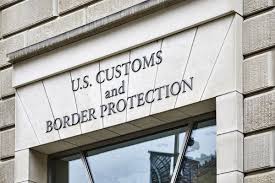A Dangerous Combination: False Claims Act and Trade Violations (Part II of III)

As in every Administration, the Trump Department of Justice has made clear its enforcement priorities — government fraud, immigration and national security to include tariff and trade violations. DOJ fully recognizes the power of the False Claims Act as a powerful enforcement tool when it comes to trade and tariff enforcement. Add to the mix, the well-established whistleblower or qui tam relator program and you have a powerful tool with serious repercussions for corporate compliance programs.
DOJ has made it clear early on that the use of the False Claims Act will include tariff and trade violations. Going back to February, the Assistant Deputy Attorney General Michael Granston (“DAAG”) warned that DOJ intends to use the False Claims Act to pursue illegal trade practices. In addition, DAAG Granston noted that the False Claims Act will be used to push government efficiency and root out waste, fraud and abuse.

Other DOJ officials noted a “key area” for enforcement will be customs and tariff cases where the actors misrepresent the origin of the product(s), the declared value and/or the classification of the goods. DOJ officials often cite as an example the 2023 case against International Vitamin Corporation under the False Claims Act resulting in a $22.8 million settlement.
Going forward, companies should expect civil and criminal cases against importers who engage in smuggling, or misrepresent key details in documentation to evade fees and tariffs. The False Claims Act is a powerful tool in protecting government functions and operations, and trade enforcement is an easy area in which to focus govern the documentation requirements and burdensome regulatory framework. Plaintiffs can earn treble damages and whistleblowers can receive huge payouts and have their attorneys’ fees reimbursed as well.
Over the last five years, FCA enforcement involving trade violations have increased. But with this new Administration’s focus on trade issues, this will increase exponentially. In 2020, Linde GmbH settled FCA claims for $22 million for misclassification and undervaluation of imports.

The False Claims Act broadly proscribes making false claims to a government entity — like the Customs and Border Protection agency (“CPB”). The FCA incorporates the concept of “reverse false claims,” which applies to tariffs, import fees and other trade costs. In addition, the FCA incorporates misclassification of products under the Harmonized Tariff Schedule (“HTS”). Companies that report products under the wrong HTS can create FCA liability. A third common risk area is false claims surrounding country of origin as a means to lower import fees or avoid tariffs.
Each of these three risk areas present FCA liability. Companies have to ensure that trade compliance and financial controls work together to mitigate risks in these areas.
In the next posting, we will review specific enforcement examples.















